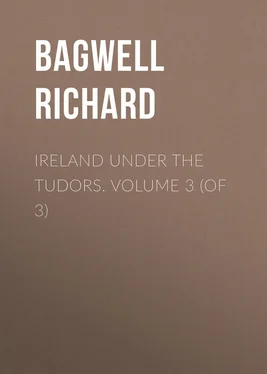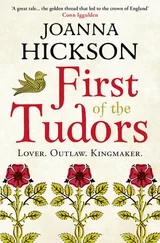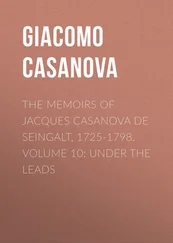Richard Bagwell - Ireland under the Tudors. Volume 3 (of 3)
Здесь есть возможность читать онлайн «Richard Bagwell - Ireland under the Tudors. Volume 3 (of 3)» — ознакомительный отрывок электронной книги совершенно бесплатно, а после прочтения отрывка купить полную версию. В некоторых случаях можно слушать аудио, скачать через торрент в формате fb2 и присутствует краткое содержание. Жанр: foreign_antique, foreign_prose, на английском языке. Описание произведения, (предисловие) а так же отзывы посетителей доступны на портале библиотеки ЛибКат.
- Название:Ireland under the Tudors. Volume 3 (of 3)
- Автор:
- Жанр:
- Год:неизвестен
- ISBN:нет данных
- Рейтинг книги:3 / 5. Голосов: 1
-
Избранное:Добавить в избранное
- Отзывы:
-
Ваша оценка:
- 60
- 1
- 2
- 3
- 4
- 5
Ireland under the Tudors. Volume 3 (of 3): краткое содержание, описание и аннотация
Предлагаем к чтению аннотацию, описание, краткое содержание или предисловие (зависит от того, что написал сам автор книги «Ireland under the Tudors. Volume 3 (of 3)»). Если вы не нашли необходимую информацию о книге — напишите в комментариях, мы постараемся отыскать её.
Ireland under the Tudors. Volume 3 (of 3) — читать онлайн ознакомительный отрывок
Ниже представлен текст книги, разбитый по страницам. Система сохранения места последней прочитанной страницы, позволяет с удобством читать онлайн бесплатно книгу «Ireland under the Tudors. Volume 3 (of 3)», без необходимости каждый раз заново искать на чём Вы остановились. Поставьте закладку, и сможете в любой момент перейти на страницу, на которой закончили чтение.
Интервал:
Закладка:
The poor Italians had no commissions and were treated as filibusters, just as the Spaniards would have treated Drake had they been able to catch him; but many blamed Grey, though he does not himself seem to have been conscious that he had done anything extraordinary. Sussex was among the critics, though he had plenty to answer for himself, but the Queen approved of what had been done. At the top of the despatch sent in answer to the Lord Deputy’s, she wrote as follows, in the fine Roman hand which sometimes contrasts so strangely with her studiously involved and obscure phraseology: – “The mighty hand of the Almighty’s power hath shewed manifest the force of his strength in the weakness of feeblest sex and minds this year to make men ashamed ever after to disdain us, in which action I joy that you have been chose the instrument of his glory which I mean to give you no cause to forethink.” She censured Grey rather for sparing some of the principals than for slaying the accessories; not for what he had done, but for what he had left undone; for the object was to prevent such expeditions in future. Elizabeth, who belonged to her age, probably wondered that anybody should object. Nor does it appear that the Catholic powers made any official complaint; it was their habit to do likewise.
Those who condescended to excuse Grey urged that 600 prisoners would be very inconvenient to an army of 800, and that lack of provisions made delay dangerous. But there were eight ships of war and four provision-vessels in the bay, which might have carried most of the prisoners, and enough biscuit, bacon, oil, fish, rice, beans, peas, and barley were found in the fort to support 600 men for six months. The 4,000 stand of arms taken might easily have been conveyed on shipboard. Between 300 l. and 400 l. was found in Spanish reals, and this money was divided among the soldiers, who were in their habitual half-paid state. If the Pope recruited for this enterprise, as he did for the former one, among the brigands of Umbria and Samnium, there would be a reason for treating the rank and file rigorously while sparing the officers, but this point is not raised in the official correspondence.
The best defence of Grey, and yet not a very good one, is to be found in the cruelty of the age. After the fall of Haarlem Alva butchered three or four times as many as perished at Smerwick. Santa Cruz put to death the crews of several French ships after the fight at Terceira in the Azores. It would be easy to multiply examples, but it may suffice to say that Captain Mackworth afterwards fell into the hands of the Offaly O’Connors, who mutilated him horribly and flayed him alive. 65 65 The Queen to Grey, December 12, 1580; Anonymous to Walsingham, November (No. 27); Dowling ad ann. 1583; Maltby to Leicester, May 28, 1582. The chronology of the Smerwick affair is as follows: Friday, November 4, fleet enters Ventry harbour; 5th, moves to Smerwick; 6th, reconnoitring; 7th, Grey shifts camp from Dingle and opens trenches; 8th, battery opens; 9th, battery continued and surrender agreed upon at night; 10th, the foreign officers come out, and their men are massacred.
The Four Masters say that the name of the Italians exceeded the reality, and that either Limerick, Cork, or Galway would at first have opened their gates to them. This is probable enough, and at any rate Smerwick was a bad place for their enterprise, for it was hardly to be supposed that England would not have the command of the sea. The same mistake was made more than once by the French in later times, and it may be assumed that Ireland is unassailable except by an overwhelming force. The Spaniards at one period, and the French at another, might often have landed an army large enough to overtax the actual resources of the Irish Government. For a time they might have been masters of the country, and would at first have commanded the sympathies of the people. But the rule of a foreign soldiery would soon become more irksome than the old settled government, and the invading general would find as little real native help as Hannibal found in Latium, or as Charles Edward found in Lancashire. Had Limerick, Galway, or Cork admitted Sanders and his Italians the struggle might have been prolonged, but while an English fleet kept the sea, the result could hardly have been doubtful.
The garrison at Smerwick consisted chiefly of Italians, with a contingent from Northern Spain, and the numbers were variously estimated at from 400 to 700. Two hundred are said to have been veteran soldiers, but opinions differed as to the general quality of the men. Grey, when he saw their corpses, mused over them as gallant and goodly personages, while Bingham said they were beggarly rascals. Among the officers were a few Spaniards, but the majority were from Italy: Rome, Florence, Milan, Bologna, Genoa, and Bolsena being all represented.
A few Irishmen who had allowed themselves to be entrapped were hanged, and some women with them. An Englishman who followed Dr. Sanders, a friar who is not named, and Oliver Plunkett, were reserved for a peculiarly hard fate. Their arms and legs were broken, and they were hanged on a gallows on the wall of the fort. Plunkett, who was examined before his death, said that twenty-four sail at Corunna and Santander were ready to sail for Ireland. Lord Westmoreland was to be sent over by the Pope, and Charles Browne, at Santander, was in correspondence with Inglefield and others. 66 66 The above details are in the letter of November 11 and 12, already cited; the examination of Plunkett in a letter of the latter date from Grey to Walsingham.
Not only was the extreme point of Kerry a bad place to attack Queen Elizabeth, but the fort itself was ill suited for defence. The only water supply was from streams half-a-mile off on each side, and the work was too small for those whom it had to protect. Its greatest length was 350 feet, and its average breadth was about 100, and 50 square feet of ground to each person is but scanty room. ‘The thing itself,’ says Sir Nicholas White, ‘is but the end of a rock shooting out into the Bay of Smerwick, under a long cape, whereupon a merchant of the Dingle, called Piers Rice, about a year before James Fitzmaurice’s landing, built a castle, under pretence of gaining by the resort of strangers thither a-fishing, whereas in very truth it was to receive James at his landing, and because at that very instant time, a ship laden with Mr. Furbisher’s new-found riches happened to press upon the sands near to the place, whose carcase and stores I saw lie there, carrying also in his mind a golden imagination of the coming of the Spaniards called his building Down-enoyr , which is as much as to say, the “Golden Down.” The ancient name of the bay, Ardcanny… from a certain devout man named Canutius, which upon the height of the cliffs, as appears at this day, built a little hermitage to live a contemplative there.’
White’s description is very good, but it applies only to the little promontory which contains the salient seaward angle of the work, and where embrasures are still clearly traceable. The lines on the land side, which did not exist at the time of White’s visit, are visible enough, being covered with roughish pasture, but the ‘mariner’s trench’ is undecipherable owing to tillage. There was a bridge between the mainland and the outer rock, and Rice’s fortalice was no doubt confined to the ‘island.’ 67 67 Sir N. White to Burghley, July 22, 1580. I have heard that Mr. Hennessy interprets ‘Ard canny’ as ‘hill of Arbutus,’ and without reference to any saint. There is a contemporary map of Fort del oro in the Record Office, which seems correct, and it is printed on a reduced scale in the Kerry Magazine . I inspected the place and took measurements in June 1883. Dun-an oir is the ‘earthwork of gold.’ Poor Frobisher’s gold was pyrites, as the London goldsmiths knew, but an Italian alchemist was believed. The ‘carcase’ mentioned by White was that of the ship, not of the owner.
Интервал:
Закладка:
Похожие книги на «Ireland under the Tudors. Volume 3 (of 3)»
Представляем Вашему вниманию похожие книги на «Ireland under the Tudors. Volume 3 (of 3)» списком для выбора. Мы отобрали схожую по названию и смыслу литературу в надежде предоставить читателям больше вариантов отыскать новые, интересные, ещё непрочитанные произведения.
Обсуждение, отзывы о книге «Ireland under the Tudors. Volume 3 (of 3)» и просто собственные мнения читателей. Оставьте ваши комментарии, напишите, что Вы думаете о произведении, его смысле или главных героях. Укажите что конкретно понравилось, а что нет, и почему Вы так считаете.












